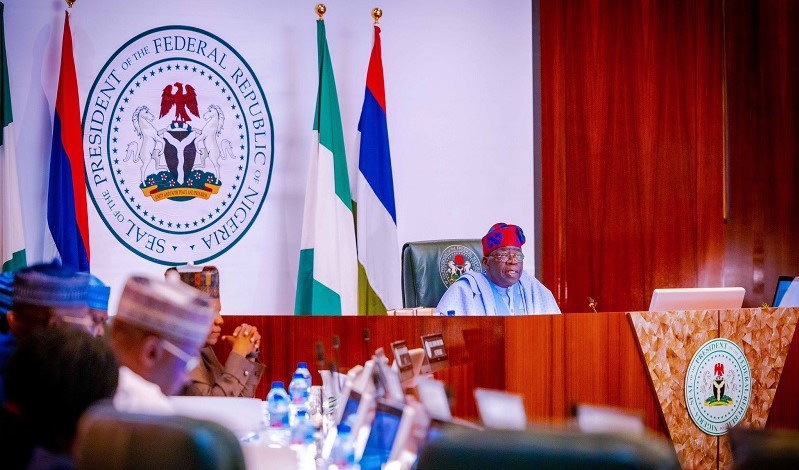- Minister Of Arts, Hannatu Musawa, Only Cabinet Member Present On All Five Major Platforms
DESPITE Nigeria being one of Africa’s most digitally engaged nations, with over 40 million people active daily on social media, a recent report has revealed a stark mismatch between government leadership and citizen engagement in the digital space.
According to a latest report by COLUMN, a digital communications and strategy firm obtained by News Point Nigeria, FG’s 51 cabinet ministers collectively command a mere 17 million followers across five major platforms: Twitter (X), Facebook, Instagram, LinkedIn, and TikTok as of April 11, 2025.
The firm warns that this digital underrepresentation is not only surprising but poses a risk to transparency, engagement, and citizen trust in an increasingly online world.
The report, led by Dr. Mo Shehu, paints a troubling picture: more than 60% of the total 17 million followers are concentrated in the hands of just five top officials, leaving the remaining 46 ministers with minimal or negligible digital presence.
By comparison, Nigeria’s population of over 236 million is majority youth, and the average Nigerian reportedly spends up to six hours daily online.
“This is more than just a numbers game,” Column’s report stated. “It reflects a systemic issue in how government relates to its people in the digital age. A cabinet disconnected online risks becoming disconnected in reality.”
Unsurprisingly, President Bola Tinubu leads the cabinet’s digital presence with about 4.5 million followers, accounting for 26.6% of the total. He is followed by:
Femi Gbajabiamila, Chief of Staff – 1.6 million followers
Muhammad Ali Pate, Minister of Health – 1.46 million
Festus Keyamo, Minister of Aviation – 1.37 million
Nyesom Wike, FCT Minister – 1.33 million
Combined, these five officials dominate the digital space, effectively shouldering the government’s online image.
Meanwhile, ministries with critical public-facing mandates such as youth development, information, and education are underperforming in online engagement.
Some ministers, the report noted, are either completely absent or barely visible, with two ministers having zero presence on any platform and several others attracting fewer than 500 followers.
Perhaps most ironically, the Minister of Communications, Innovation and Digital Economy, Dr. Bosun Tijani, was not among the top five, despite overseeing the nation’s digital infrastructure and innovation drive.
Only one cabinet member, Minister of Arts, Culture and Creative Economy Hannatu Musawa, is present on all five major platforms an exception that Column used to highlight what a fully connected public servant could look like in the digital age.
Platform engagement breaks down as follows:
X (formerly Twitter): 9.4 million combined followers
Facebook: 4.8 million
Instagram: 2.1 million
TikTok: Used by only 7 ministers
LinkedIn: Active use by 17 ministers, despite its growing relevance for policy professionals
Column observed that many accounts were outdated, poorly managed, or inactive, while some ministers were only present on a single platform.
“Digital engagement isn’t optional anymore. In today’s world, a government that cannot communicate effectively online is a government that risks irrelevance,” the report emphasized.
The dominance of only five ministers raises concerns about over-centralization of the government’s digital voice and the potential dangers of limited diversity in public communication.
“A truly connected cabinet should reflect broad and consistent engagement—not just a few online heavyweights while others remain digitally silent,” Column stated.
The report concludes that Nigeria’s cabinet is failing to match the country’s digital literacy, especially among its large and politically aware youth population, where the median age is 18.
Column emphasized that building trust and ensuring transparency in governance today requires more than policy briefings or press releases, it requires visible, interactive leadership in digital spaces where millions of citizens live, learn, and express themselves daily.
“It’s not just about being unreachable. Ministers with no online presence signal a deeper issue: a fundamental disconnect from modern governance practices,” Column warned.
Still, the report didn’t suggest that ministers should attempt to be viral influencers, but rather intentional, authentic, and consistent communicators.
“Ministers don’t need to be everywhere, but they need to be somewhere and they must be present with purpose,” Column concluded.







